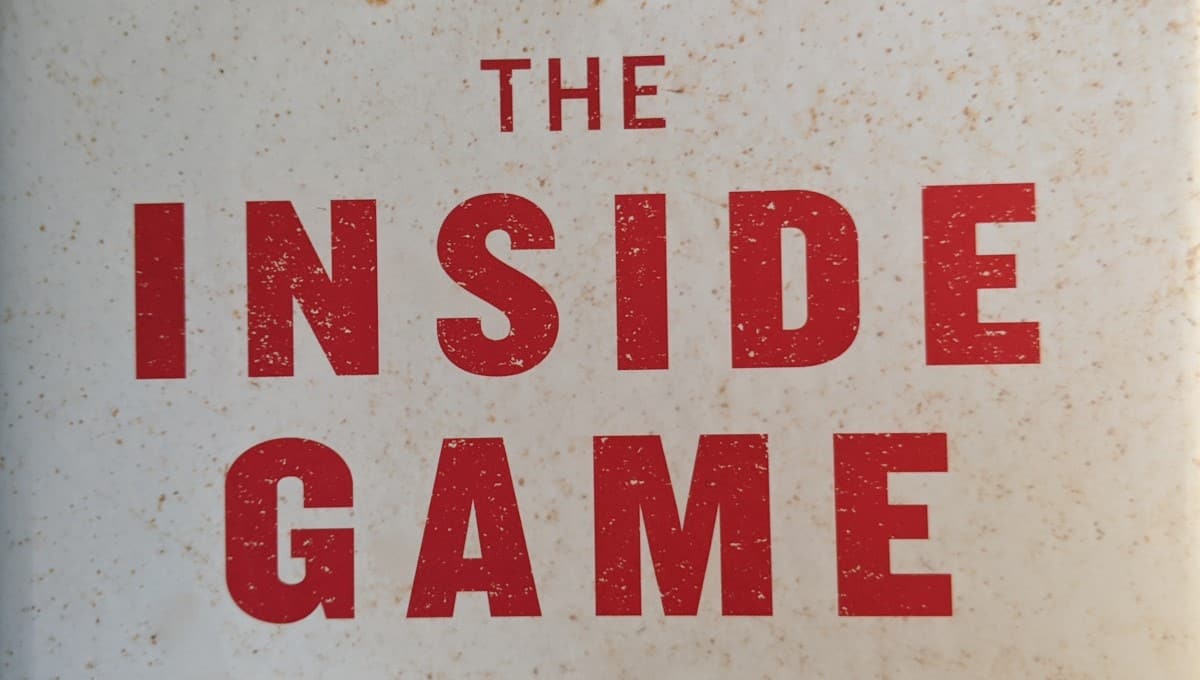Welcome to the Sox Machine Book Club. Over four or five installments over the next two or three weeks, we'll be discussing Keith Law's "The Inside Game."
(Bookshop.org link; Sox Machine receives a portion of the proceeds.)
Keith and I talked about his book on the most recent episode of the Sox Machine Podcast, but in lieu of a more typical review (like what I did for "Future Value"), this one seems conducive to group discussion, especially since we have the time. If you're just getting a copy, I'm planning on spacing the next one out until Friday to afford time to catch up.
This is my first attempt at conducting a book club in post form, so I'm open to suggestions going forward. To start, here's my general idea: I'll outline each of the concepts, partially for discussion, and partially for something to refer to when I cite these by name years from now, instead of just describing them. I'll save my thoughts on the chapters, and White Sox-related instances, in the comments shortly after posting.
(And if you're interested in ESPN airing KBO games, I'll be posting a First Pitch tonight for the Midnight Special.)
Chapter 1 -- The Case for Robot Umpires: How Anchoring Bias Influences Strike Zone and Everything Else
The definition of the anchoring and adjustment heuristic from Wikipedia:
Anchoring and adjustment is a psychological heuristic that influences the way people intuitively assess probabilities. According to this heuristic, people start with an implicitly suggested reference point (the "anchor") and make adjustments to it to reach their estimate. A person begins with a first approximation (anchor) and then makes incremental adjustments based on additional information. These adjustments are usually insufficient, giving the initial anchor a great deal of influence over future assessments.
It's most famous examples in studies and exercises involve numbers -- car negotiations based off an initial price, even if it's not market value, or a roulette wheel subconsciously nudging people's guesses towards its value on wholly unrelated topics. But they can also be applied to decisions that aren't ostensibly numerical, because there's still a value underneath them.
Law applies it to the strike zone, where studies have shown that error rates on balls and strikes on the various counts show that umpires have a tendency to err on the side of pulling the count to neutral. There's a sort of value underneath it, as ball/strike is binary in nature.
It's more abstract in terms of labels, and how a first-round pick might get more chances than an equally meritorious second- or third-day pick because the initial assessment anchors the player as possessing more talent.
Chapter 2 -- Never Judge an Iceberg by Its Tip: How Availability Bias Shapes the Way Commentators Talk About Sports
Law tackles availability bias in this section, defining it thusly:
When a specific fact or example comes to mind more readily, we tend to overemphasize that fact or example -- maybe we ascribe too much importance to it, or perhaps we extrapolate and assume that that example is representative of the whole.
In non-baseball examples, Law points to plane crashes or kidnappings -- big events that draw tons of attention for newsworthy reasons, but inadvertently make people think they're more likely to occur because they're so front-of-mind.
In terms of baseball, awards voting is prey to it ( or a player being defined as (un)clutch because of a couple high-profile moments in either direction.
Chapter 3 -- Winning Despite Your Best Efforts: Outcome Bias and Why Winning Can Be the Most Misleading Stat of All
Wikipedia cites a Harvard Business School study (which has a dead link) for its definition:
An error made in evaluating the quality of a decision when the outcome of that decision is already known. Specifically, the outcome effect occurs when the same "behavior produce[s] more ethical condemnation when it happen[s] to produce bad rather than good outcome, even if the outcome is determined by chance."
Law opens the chapter with discussing how the Arizona Diamondbacks won the 2001 World Series in spite of Bob Brenly's managing, not because of it. This is something that's easiest to spot in manager, because they're in charge of laying out the strategy, but have relatively little to do with results. They can lay out great plans that crumble, or attempt poor gambits that succeed against self-imposed odds.





